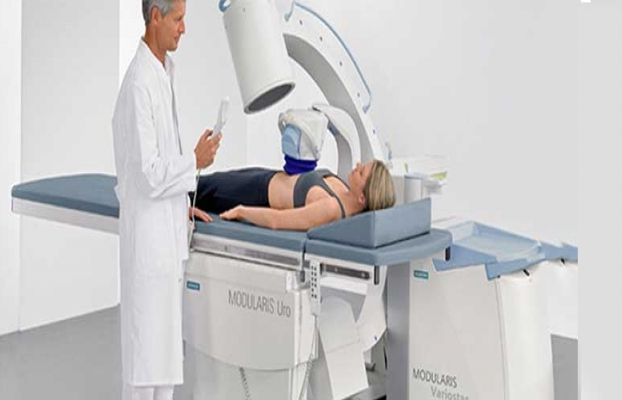
ESWL
A non-surgical method for treating kidney and ureteral stones is called extracorporeal shock wave lithotripsy (ESWL). Instead, high-energy shock waves are used to break stones into smaller pieces the size of sand grains. Shock wave lithotripsy usually works best to treat smaller stones inside the kidney or upper part of the ureter (urine tube).
Surgeons opt for ESWL when kidney stones:
- Have a diameter greater than 5 millimeters, or about the size of a pencil eraser, and are too large to pass on their own.
- Restrict urine flow.
- Cause extreme pain.
Tests and Treatment:
The following tests can be performed to identify kidney stones and learn more about them:
Prior to your procedure, the following tests may be required, depending on your age, medical history, medications, and overall health:
- EKG (electrocardiogram) o CBC (complete blood count)
- PT/PTT (blood coagulation profile)
- Comprehensive Metabolic Panel (blood chemistry profile)
- Urinalysis
- Abdominal ultrasound or CT scan
- MRI
- Sonogram.
- Treatment
ESWL is a noninvasive procedure that breaks down stones in the pancreas, bile ducts, and other parts of the urinary system. With the aid of X-rays or ultrasound, it makes use of shock waves that are directed toward the stones. After EWSL, kidney and ureteral stones frequently dissolve on their own.
Make an appointment right away for consultation on your urological issue.
Call With Doctor